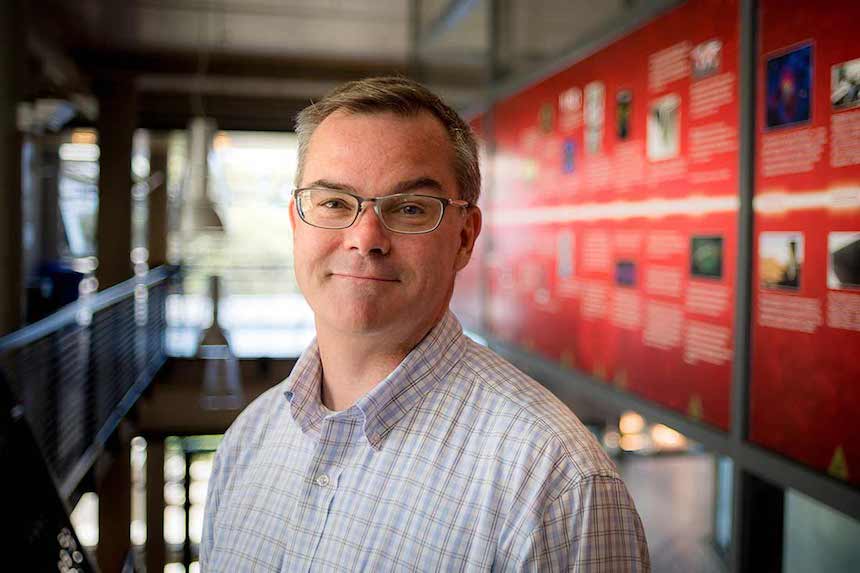
How can humans best cooperate in an increasingly complex world? The Center for Peace and Security Studies (cPASS) at the University of California San Diego is working to find out by studying new and emerging modes of conflict—cybersecurity, military automation, weapons of mass destruction, cross-domain deterrence, and intelligence derived from big data. Launched in 2016 by social scientist and foreign policy expert Erik Gartzke, the center has now received a $3.32 million multi-year grant from the Charles Koch Foundation to support its mission and growth.
The Charles Koch Foundation supports students and scholars whose work facilitates dialogue and sparks innovation. The foundation offers philanthropic support to more than 300 public and private universities, including UC Berkeley and UCLA.
“We thank the Charles Koch Foundation for its support of the Center for Peace and Security Studies at UC San Diego, one of the world’s top 15 research universities,” said Chancellor Pradeep K. Khosla. “We are confident that the studies undertaken at cPASS, like our other research centers, will make a positive impact throughout the globe.”
Gartzke, a professor in the top-ranked Department of Political Science in UC San Diego’s Division of Social Sciences, said that cPASS is poised to become one of the leading sources of insight about the emerging logic of cyberwar and military automation. It is one of just a handful of research centers doing “this new wave of information security work.”
UCSD says that the center’s core team consists of acknowledged experts on cross-domain deterrence, and is also developing new data and computer-based technologies for inductive analysis of crises and conflict. They have expertise in the forecasting of nuclear proliferation and nuclear security, and they model large alliance structures and the sources of extended deterrence success or failure.
“The security environment for the United States and for peace and stability in the world is changing quickly,” Gartzke said. “Generous funding from the Charles Koch Foundation will allow the Center for Peace and Security Studies to grow to meet the need for new answers that address these emerging challenges. We at cPASS are excited by this important expression of support.”
The grant, which contributes to the Campaign for UC San Diego, will provide operational support for cPASS including funding for postdoctoral fellows and researchers, as well as for public outreach. The center will be supported in its team-based, multi-disciplinary, multi-method analysis efforts on policy relevant topics. A focus will be on the viability of a U.S. grand strategy of restraint and the use of deterrence to keep America safe, and the costs, risks, and other aspects of U.S. alliance commitments and interventions.
The center plans to host conferences, workshops and other similar programmatic activities related to the mission of the center and scope of the grant. In addition, cPASS will organize and host a set of academic talks designed to publicize the center’s research.
“We’re excited about UC San Diego and its scholars’ work to better understand emerging issues in security studies and their implications for U.S. foreign policy. Scientific research can contribute to a healthy exchange of ideas, challenging the status quo and leading to innovative, realistic approaches that make America safe,” said Charles Koch Foundation Vice President for Research William Ruger.
UCSD notes that additional private support will be needed to sustain the Center for Peace and Security Studies.
This article published courtesy of Homeland Security News Wire


